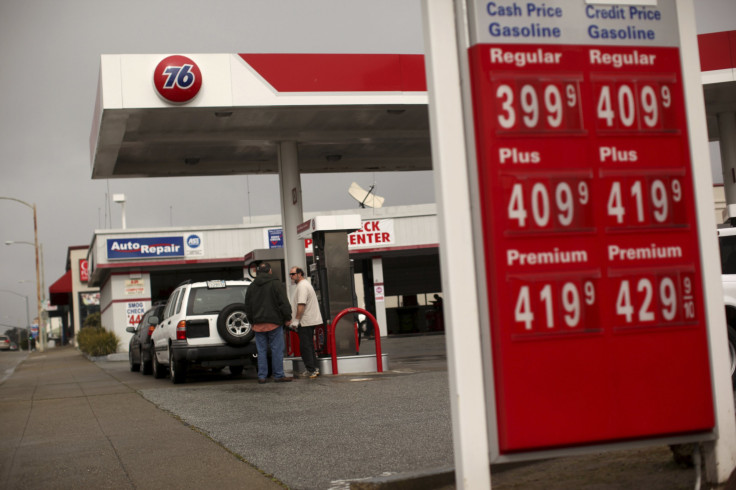US Gas Prices: Can American Drivers Ever Catch A Break?

Regardless of the political bickering in Washington, D.C., if there’s one thing that unites all Americans in frustration -- exasperation, really -- it’s gasoline prices.
And lately, gas prices in the States seem to know only one direction: up.
In decades past, U.S. motorists could count on at least one form of relief: seasonality, with gasoline prices falling in the autumn and winter before rising in the heavier travels seasons of spring and summer. This decade, however, even that seasonal relief seems to have disappeared. In 2012 and 2013, gasoline prices declined slightly before resuming their high plateau. According to data compiled by gasbuddy.com, in winter 2012, the average price of regular unleaded declined from about $3.88 to $3.30 per gallon, then quickly zoomed back up to $3.80; in winter 2013, the price dipped from about $3.70 to $3.45 before zipping back up to $3.70 in the spring.
“I’d say that I’ve been desensitized to the high gas prices,” Denise Page, a Martha's Vineyard, Mass., resident told The Vineyard Gazette from her pickup truck. “It’s the price you have to pay for living in such an awesome place.”
Further, although this June the average price for regular unleaded gasoline has declined about 15 cents to $3.55, the dominant theme regarding U.S. gas prices in the last three years is obvious: perpetually high prices! What’s going on here?
Well, don’t blame demand: U.S. gasoline consumption in the summer 2013 is still lower than the 2007 all-time high, before the U.S. housing bubble burst. Americans, via the purchase of high miles-per-gallon vehicles, and via driving less, are consuming substantially less gasoline per driver than prior to the Great Recession.
No, the real culprit is this disposable income-eating saga: globalization. You read correctly: the “Big G” -- globalization.
Globalization -- basically the global shift to capitalism and the increased trade among free markets -- has resulted in U.S. oil companies and refiners exporting gasoline. The U.S. has been a net exporter of gasoline since 2009, fool.com reported. Even more telling, U.S. exports of finished gasoline products have grown at a compound annual rate of 15.7 percent since 2000.
By the raw numbers, in January 2000, the U.S. exported 6.841 million barrels of finished gasoline product. In January 2013, the nation exported 16.981 million barrels!
If you haven’t spilled your coffee (or sports drink) in frustration by this stage, you probably should have. The American people are driving less, have become more efficient in their vehicle choices, and the net result is stratospheric gasoline prices because U.S. companies -- rather than sell the gasoline in the U.S. market, which would add to supply and lower gasoline prices -- are choosing to export the gasoline to external buyers who will pay a better price for these finished gasoline products.
If the above practice by oil companies and refiners strikes you as unfair or un-American, you’re not alone; the actions of gasoline exporters are literally helping keep U.S. gasoline prices high.
In the oil companies’/refiners’ defense, the firms would argue they’re only doing what the free market and free trade allows: the sale of their product to the highest-paying customer, or customer of their choice. And many of these gasoline sellers would no doubt argue that tactic is quintessentially American. After all, the business of America is business, including profit-maximization, and it doesn’t matter whether the customer is an American or a citizen in Mexico, India or Venezuela.
Whether the policy is fair to Americans, who, by the way, help pay for the public infrastructure that these companies benefit from, is another matter.
For now, know this: If you, John or Jane Citizen of the U.S., can pay $3.50 per gallon of gasoline, but an oil company or refiner finds foreign buyers willing to pay $3.75 or $4 per gallon, that gasoline is likely to be shipped abroad.
© Copyright IBTimes 2024. All rights reserved.











